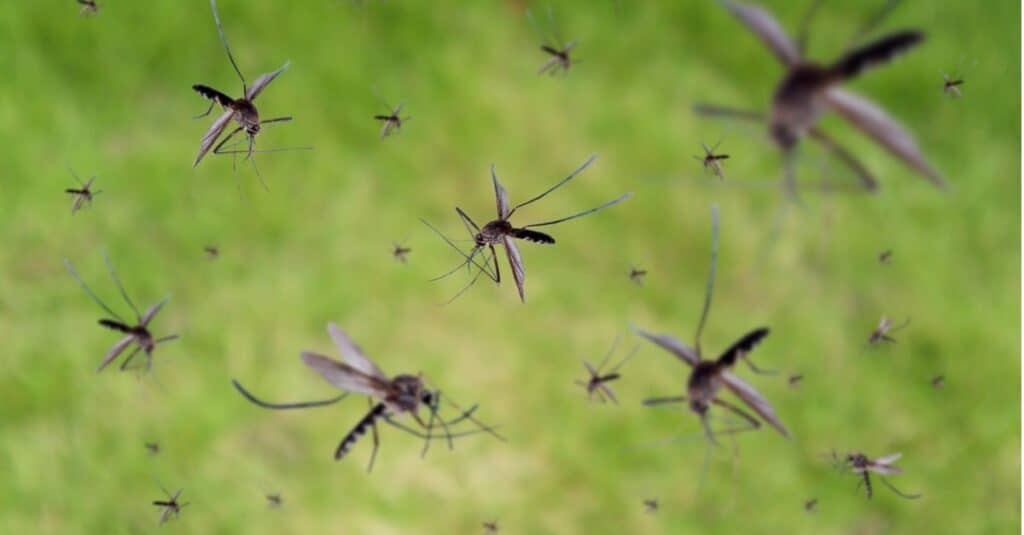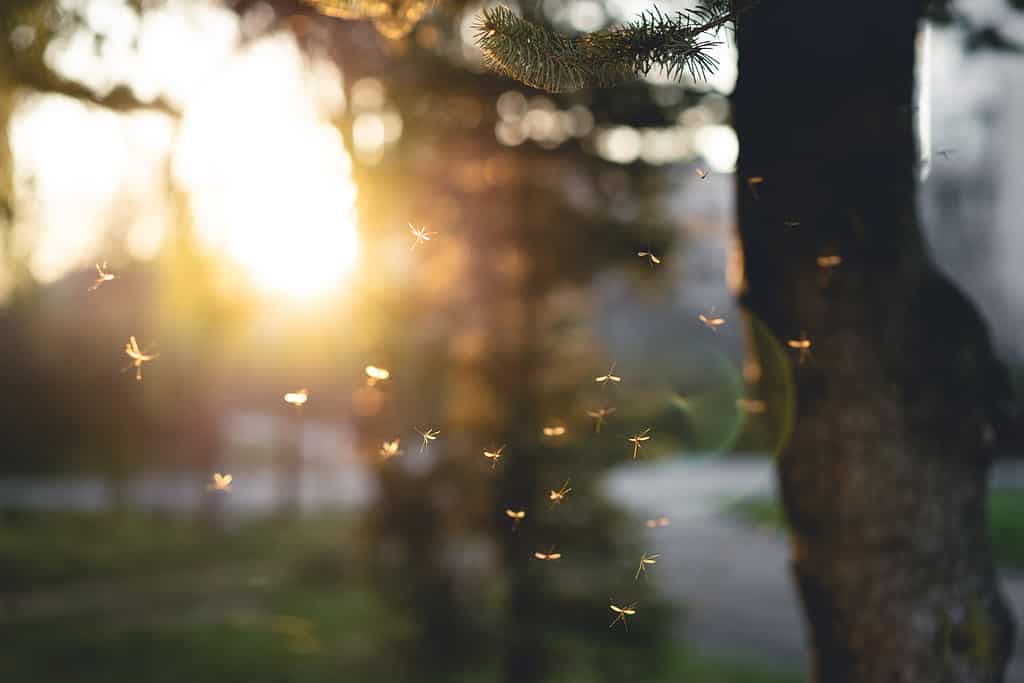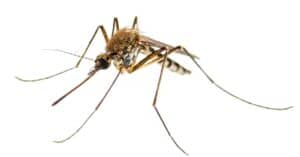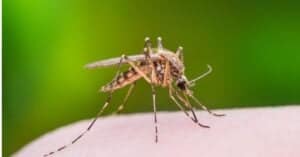Although they hatch from water, mosquitoes don’t particularly enjoy the rain. These flying insects prefer standing water over droplets barreling down from the sky. But if a storm is passing through, they display some remarkable feats! However, when the rainfall is severe, it spells trouble. So, where do mosquitoes go when it rains? Let’s find out!
Can Mosquitoes Fly In the Rain?
If you’re thinking summer showers are going to easily get rid of mosquitoes, you’re wrong. Mosquitoes have a surprising ability to fly in the rain, so long as it’s not too heavy. A single raindrop should be able to knock the living daylights out of these small but mighty insects — yet mosquitoes, much like cockroaches, are impressively resilient.
Despite how small and seemingly weak they appear, they have tough exoskeletons. While their exoskeletons help them keep safe in the rain, it’s ultimately their size that weirdly works in their favor. The speed and size of a raindrop are massive compared to a mosquito but that just means the raindrop doesn’t lose momentum. Mosquitoes are intelligent in the way they handle these collisions as well.
Just like you can’t swim against the current in the ocean, mosquitoes know to go with the flow, letting the raindrops carry them a bit. They don’t stay connected to the falling water for long, however. If they did, they’d be hurtled into the ground into a catastrophic, watery death. So, before that happens, they employ their legs and wings. This allows them to dislodge themselves from the water droplet just in time to take flight again!

Mosquitoes are quite clever, able to fly in the rain but some storms are too much for them to handle.
©iStock.com/Kwangmoozaa
Where Do Mosquitoes Go When It Rains
When the rain gets too heavy, mosquitoes, much like humans when caught in a sudden storm, seek shelter. This can be anywhere from a leaf that provides cover to an awning where they can wait out the storm. Mosquitoes can drown in heavy rain drops and seeking shelter helps them survive.
Once the rain lets up enough, it’s game on again. Since they can still fly when it’s raining, they can still bite you. When the weather clears up, you can minimize mosquito populations by going around and emptying any containers with standing water — don’t forget to check your gutters too! That’s a prime spot for mosquitoes when they’re clogged and water stops flowing.
Mosquitoes During Spring
When spring rolls around, you get to enjoy it as the color returns to the environment around you. Trees start to boast a range of green hues and flowers begin to bloom beautifully. But just like every other part of wildlife awakens with warmer temperatures, you can expect mosquitoes to emerge too. After a long season of hibernation, adult mosquitoes take flight again and mosquito eggs start to hatch, only adding to their population.
Mosquitoes During Summer
This is usually the worst season for humans who want to enjoy the outdoors without dealing with mosquito bites. But the weather is perfect for mosquitoes during the summer season, especially if you have standing water anywhere on your property. The females become more active as their metabolism increases, which means they’re dead set on getting their blood meals. Since they’re hot, they can get dehydrated, so you’re likely to see them on the hunt during daylight hours.

Mosquitoes are most active during warmer temperatures, particularly during the summer season.
©Tsyb_Oleg/ via Getty Images
Mosquitoes During Fall
During the fall, female and male mosquitoes are getting busy, securing the next generation. During this period, female mosquitoes forego their usual blood meals and instead stick to the male mosquito’s diet: sugar! They get extra plump, which serves a purpose as they prepare for the cold winter months ahead. They seek out shelter in safe, warm environments as they prepare to overwinter. They may turn a cave, crawl space, or attic into a temporary home while their bodies enter a dormant state.
Mosquitoes During Winter
Like many other insects, mosquitoes seem to vanish when winter rolls around. Considering they’re unable to regulate their body heat, this makes sense. But they don’t actually disappear. They hibernate! This allows them to survive through the winter. It’s not just adult mosquitoes that wait out the cold. Tiny mosquito embryos still in their eggs hibernate too, waiting until the weather warms enough to hatch. Female mosquitoes lay their eggs in standing water and even if the water freezes, the embryos remain in a state of hibernation submerged beneath the ice. As pesky as they are, you have to give it to them. Their will to survive is admirable!
The photo featured at the top of this post is © iStock.com/arachi07
Thank you for reading! Have some feedback for us? Contact the AZ Animals editorial team.







